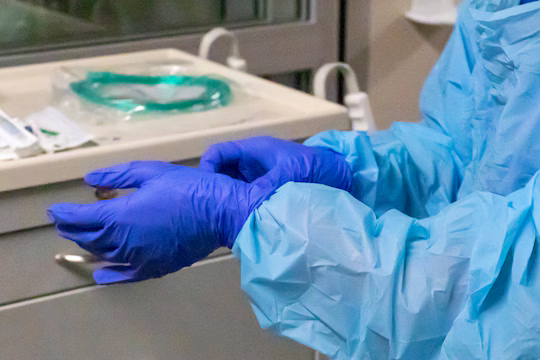A new scientific study is raising serious concerns about the long-term effects of cannabis use, with researchers revealing that smoking pot could not only harm users but also potentially impact their children and future generations, New York Post reports.
The study, published in Addiction Biology, classifies cannabis as a “genotoxic” substance—meaning it can damage genetic material within cells. This genetic damage could lead to DNA mutations, accelerating the aging process, and increasing the risk of developing cancer. More alarmingly, researchers suggest that these effects may not be limited to the individual smoker. The genetic damage could potentially be passed on to future children through damaged sperm and eggs, raising the stakes of cannabis consumption for families and future generations.
“The link we’ve described between cannabis use and genotoxicity has far-reaching consequences… This new research shows how genetic damage from cannabis use can be passed down the generations,” said Stuart Reece, study co-author and researcher at the University of Western Australia.
The study’s findings are rooted in research on mitochondria, the energy-producing structures in cells. Mitochondria are crucial for cellular health and function, and prior studies have already indicated that cannabis may impair mitochondrial function. The presence of cannabinoids—the active chemicals in marijuana—has been shown to reduce the energy production of mitochondria, which may contribute to various health issues.
Reece and his colleague’s research was inspired by recent findings published in Science that explored how mitochondrial dysfunction can cause chromosomal damage, increasing the risk of cancer, premature aging, and birth defects. While these studies did not directly involve cannabis, Reece’s team used these insights to examine the potential dangers of marijuana, including mitochondrial and genetic damage.
The link between cannabis and cancer has been a topic of controversy, with many studies unable to definitively prove that marijuana use directly causes cancer. However, recent research has suggested that cannabis could increase the risk of testicular cancer, particularly among younger men. Historically, the cancer-cannabis connection has been debated, with some attributing the lack of conclusive evidence to flawed study designs and the increasing potency of marijuana since the 1970s.
“Whilst cancer is thought to be a rare outcome amongst cannabis-exposed individuals, aging effects are not,” Reece noted.
He emphasized that the effects of accelerated aging could be far more common.
“A dramatic acceleration of biological age by 30% at just 30 years was recently reported,” Reece added.
One of the most concerning findings of the study is the potential for cannabis use to accelerate biological aging. The researchers suggest that regular use of cannabis may speed up the aging process, with one study revealing that users could experience a 30% acceleration in biological age by the time they reach 30. While the connection between cannabis and aging has been largely overlooked in the past, Reece hopes this new research will prompt a reevaluation of the risks, particularly as cannabis becomes more widely legal.
While cannabis use is increasingly normalized, especially with recreational cannabis now legal in 24 states and medical marijuana available in many others, Reece argues that the discussion surrounding cannabis legalization needs to shift. He believes that the personal choices involved in cannabis use should also consider the potential consequences for future generations.
“Reframing the discussion surrounding cannabis legalization from a personal choice to one that potentially involves multiple subsequent generations is essential… We need to consider the long-term impact of cannabis use not just on individuals, but on their children and grandchildren as well,” Reece said.
As recreational cannabis use continues to grow in popularity, particularly among younger people, the implications of this research could have a significant impact on public health discussions and policy. While cannabis is often regarded as a relatively harmless recreational substance, this new study highlights potential risks that may not have been fully considered in the rush to legalize and normalize its use.
The study’s findings suggest that users should carefully weigh the potential risks, including the impact on their health, aging process, and even the genetic health of their future offspring. The long-term effects of cannabis use are still unclear, and more research is needed to fully understand its impact on DNA, mitochondria, and overall health.









